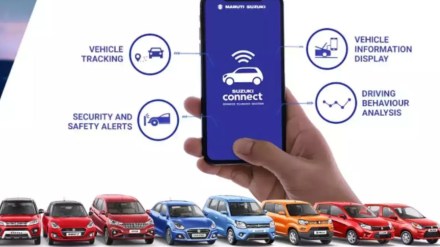Closing the feedback loop can be notoriously challenging. With artificial intelligence (AI) at their disposal, that’s the first frontier most brands are looking to conquer.
Take Maruti Suzuki India. Two years back the automaker launched an industry-first AI-based 24×7 virtual car assistant app for its brand NEXA. Now it is exploring AI adoption across the entire value chain — from sourcing, production and quality control to marketing and sales.
Why? Since their introduction in 2021, its AI-based chatbot and 24X7 virtual car assistant have handled 3.6 million customer queries. Six lakh leads were influenced by them, with 25,000 customers having used these tools to book service appointments, cutting down the time consumed by these processes by a neat 25%. Currently, 97% of total customers reaching out with a sales query are handled by a digital help.
“Deploying AI-based conversational bots to attend to customer enquiries in our hyperlocal dealer programme has also improved the conversion rates,” says Shashank Srivastava, senior executive officer, marketing and sales, Maruti Suzuki India. “In sum, it brought speed, scale, effectiveness and reduced costs.”
At the moment, Maruti is working with start-ups such as Dave.AI for generative AI, Xane.AI for an AI-based digital car owner’s manual, and Rezo.AI to convert speech calls to text to be used to analyse the experience provided by agents to customers.
For the most part, Maruti Suzuki is using AI to enrich customer journeys through personalisation. For instance, it is using social listening to track social media interactions, sentiments for new launches and events, which helps it in online reputation management and understanding specific needs of consumers.
AI tools have also helped the company optimise its digital advertising campaigns by analysing feedback and adjusting ad placements and bidding strategies, says the company. It is using tools embedded in its campaigns to identify platforms where its ad placements are off target. Accordingly, it calibrates and modifies ad placements.
Further, AI tools have helped increase visibility of its tier-2 and tier-3 vendors. The brand has created digital avatars of salespersons on the brand website and is using AI-based models for cross-selling and up-selling, improving revenue per customer. The company’s recommendation engine suggests additional accessories and add-on services to customers based on purchase history. It helps the brand offer relevant products and services to customers. “We have seen around 10% growth in average per car revenue through this model,” he adds. The AI-based personalised marketing campaigns have helped it slash customer acquisition cost by 50% over a two-year period (2020-21 to 2022-23).
While AI does personalise interactions, Jagdeep Kapoor, founder & MD, Samsika Marketing Consultants, warns that customers still feel comfortable if there is a human at the other end to satisfy their final queries and provide an assurance of service. He advises brands to continue to have a hybrid interaction model where the facts and information are handled by AI, and the emotional connection is added on by a salesperson.
